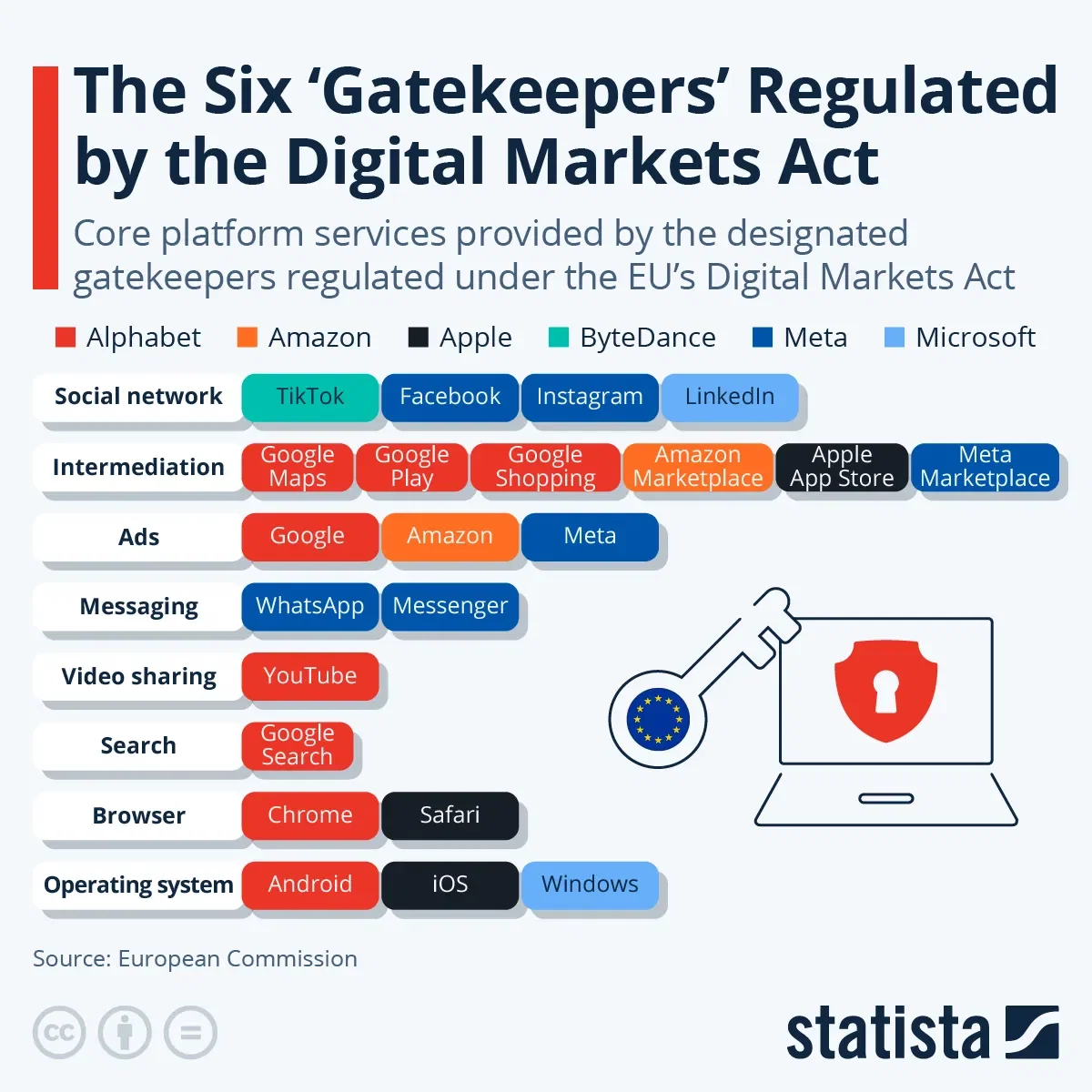Where Data Tells the Story
© Voronoi 2026. All rights reserved.

The Digital Markets Act (DMA) – the European Union’s most wide-ranging effort to rein in the power of big tech companies – went into effect this week. On March 7, the six-month grace period for the six companies designated as “gatekeepers” ended, meaning they now have to comply with the rules set out in the DMA and outline the measures they’ve taken in compliance reports to the European Commission.
"Today marks a turning point for our European digital space,” Commissioner Thierry Breton said in a statement. “The DMA sets precise obligations and the possibility to sanction large online platforms should they not comply. We have been in discussions with gatekeepers for months to help them adapt. And we can already see changes happening on the market: competitors can set up alternative app stores, European users have more control over their data and are now empowered to make choices they did not have before due to default settings.”
First proposed in December 2020 and adopted by the European Parliament and Council in September 2022, the Digital Markets Act (DMA) aims to foster fair competition and address the dominance of large tech platforms in the digital economy. It seeks to regulate "gatekeeper" platforms with significant market power by imposing obligations like data sharing, interoperability and certain transparency requirements to ensure a level playing field for smaller competitors and foster innovation. Companies become subject to the DMA if they operate so-called core platform services, e.g. search engines, app stores or messenger services and meet the following criteria: 45+ million monthly active users and 10,000 annual business users in the EU, annual revenue of at least €7.5 billion in the European Economic Area and what the Commission calls an “entrenched”, i.e. stable market position.
In September 2023, the European Commission designated six gatekeepers – Alphabet, Amazon, Apple, ByteDance, Meta and Microsoft – that are providing 22 core platform services which meet the criteria to be regulated under the DMA. The following chart sums up which platforms and services from which companies will be subject to the Digital Markets Act going forward, illustrating that Google is facing the most scrutiny from the EU’s antitrust watchdog, with eight of its services being designated as important gateways. It’s important to note that the scope of the DMA will widen over time, as new gatekeepers could be identified, or companies could lose that status. On March 1, the European Commission announced that Booking, ByteDance and X had notified the Commission that some of their services might meet the DMAs criteria, which will now be assessed and decided on within working 45 days.